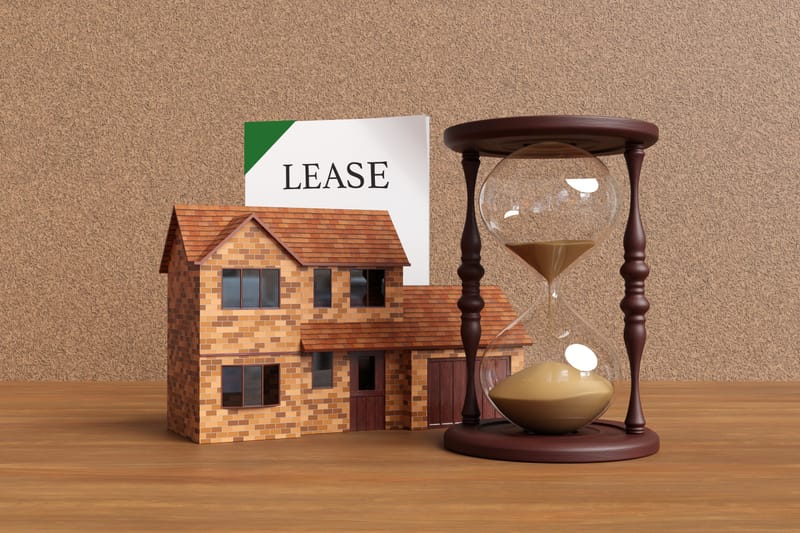LEASEHOLD PROPERTY

Affordability With Strings Attached
If you’ve come across a surprisingly affordable apartment or home in central Auckland, chances are it’s leasehold. While leasehold properties can offer a lower entry point, they come with ongoing financial obligations that differ significantly from freehold homes.
At Harcourts Patras & Co in Greenlane, we often guide buyers through leasehold purchases—helping them weigh the long-term costs and benefits. In this guide, we break down what leasehold property means in New Zealand, how it works, and whether it’s the right choice for your property goals.
What is Leasehold Property?
In New Zealand, leasehold means you are buying the home or building, but not the land it sits on. The land remains under the ownership of another party—often a council, trust, or private landowner—and you pay annual ground rent to use it.
You essentially lease the land for a specified period (e.g. 21, 99, or 999 years), with terms outlined in the lease agreement.
Leasehold vs Freehold: The Key Differences
| Feature | Leasehold | Freehold |
|---|---|---|
| Land Ownership | You lease the land | You own the land outright |
| Ground Rent | Yes, paid annually or quarterly | No ground rent |
| Initial Purchase Price | Lower | Higher |
| Future Resale Value | Can be limited | Typically stronger growth |
| Bank Lending | More limited, stricter criteria | Easier to finance |
Benefits of Buying Leasehold Property
Lower Purchase Price
Leasehold properties are often significantly cheaper than equivalent freehold properties in the same location.
Premium Locations
Leasehold is common in high-demand city areas (e.g., Auckland CBD, Mission Bay), where freehold land is scarce.
Modern, High-Spec Properties
Many leasehold apartments are new or recently renovated, offering stylish urban living.
High-Yield Potential (for Investors)
Lower upfront cost may result in higher rental yields—provided ground rent and outgoings are managed well.
Risks and Considerations
Ongoing Ground Rent
Ground rent is reviewed periodically and can increase substantially—affecting affordability and resale value.
Limited Capital Gains
The resale value may not increase significantly over time, especially as the lease term shortens.
Difficulties Securing Finance
Some banks are cautious with leasehold lending, often requiring larger deposits or offering lower LVRs.
Additional Costs
Body corp fees, lease fees, insurance, and ground rent can add up quickly.
Resale Challenges
Some buyers are hesitant to buy leasehold due to complexity and perceived risk.
Lease Expiry Risks
If the lease is nearing expiry or has tough renewal terms, it can drastically reduce the property’s marketability.
Who Should Consider Leasehold Property?
Urban Professionals
Looking for inner-city living at a lower entry cost.Investors Seeking Yield
Can manage ongoing costs in return for better rental returns.Buyers With Limited Budget
Those priced out of freehold suburbs like Greenlane or Remuera may find leasehold viable.Short-Term Owners
Planning to live in or rent the property for 3–5 years, without holding long-term.
What to Check Before Buying Leasehold
Length of Lease Remaining
The longer, the better. Anything under 20 years remaining may be hard to sell or finance.Ground Rent Terms
Check how often it is reviewed and what formula is used to calculate increases.Review Date & Market Rent Clause
Understand the timeline and basis for rent increases.Right of Renewal
Does the lease have options to extend, and at what cost?Owner of the Land
Council-owned land may have more favourable terms than privately owned land.Legal Review
Always have your solicitor review the lease agreement before signing anything.
Tips for Buying Leasehold with Confidence
Don’t Be Drawn In by Price Alone
Understand the full financial picture—including future ground rent increases.Seek Mortgage Advice Early
Check whether your bank lends on leasehold and under what conditions.Compare With Freehold Alternatives
Sometimes a slightly smaller freehold option nearby could be better value long-term.Talk to Current Owners or Body Corporate
Ask about historical rent increases and their experience managing the property.Review Exit Strategy
If you plan to sell in 5–10 years, consider how lease terms might affect buyer interest.
Why Work with Harcourts Patras & Co (Greenlane)?
Transparent Leasehold Listings
We provide clear disclosure on all leasehold terms and costs—no surprises.Experience with Complex Sales
Our agents are trained to navigate the legal, financial, and timing nuances of leasehold transactions.Developer and Solicitor Connections
We connect buyers with professionals experienced in reviewing leasehold titles and advising on risk.Local Knowledge
Our Greenlane team understands the leasehold market across Auckland, from CBD apartments to waterfront homes.
Conclusion: Is Leasehold Property Right for You?
Buying leasehold property in NZ can be a smart move—but only if you go in with clear eyes. It’s not about getting the cheapest home—it’s about understanding the true cost of ownership.
With professional advice, careful financial planning, and full transparency, leasehold can suit certain buyers—especially in premium locations with high rental demand.
Harcourts Patras & Co in Greenlane is here to ensure that whether you buy freehold or leasehold, your investment is guided by facts, not just figures.
Explore Leasehold Listings
Visit www.patrasandco.nz to browse current leasehold properties or schedule a call with one of our local experts.